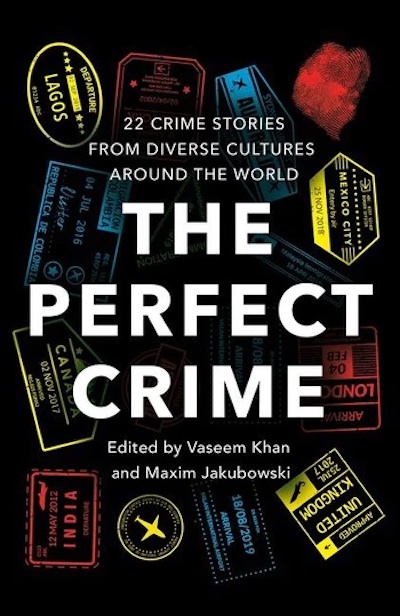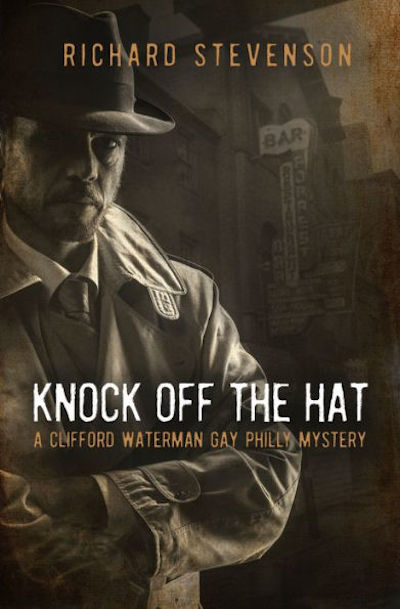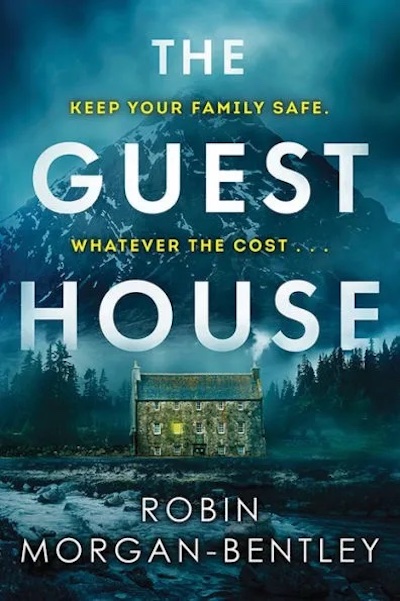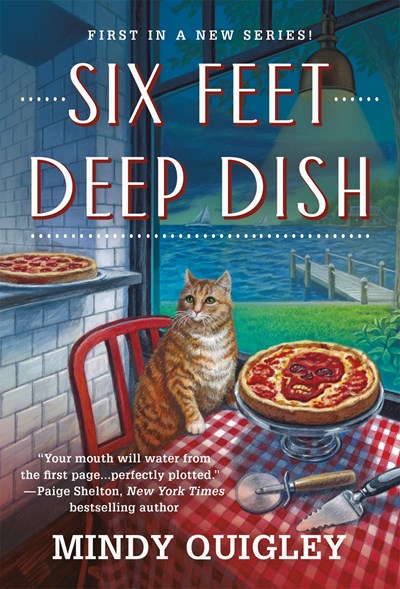Hopes and fears are nested within secrets and lies in this historical romance/spy novel that moves from English drawing rooms to the 1936 Berlin Olympics. The same fraught layers form the novel, which sees pensive Viviane Alden travel to Germany with her flighty stepsister, Julia, to visit eligible distant acquaintances. The author’s note from Canadian author Cornwall (The Woman at the Front) explains that right up till 1939, intermarriage of English and German aristocracy was encouraged as a way to avoid a repeat of the Great War. The young women are matched with Otto and Felix, sons of the house, who, like Viviane and Julia, show how different siblings can be. Otto is a devoted Nazi who’s rising in the ranks, while his brother, a chemist who flaunts his family’s expectations by working with a Jewish Nobel prize winner, wants none of his brother’s fascist displays. Berlin during Hitler’s reign, and the fawning of international celebrities who thought the dictator a buffoon who’d soon disappear, are chillingly portrayed here. They form an ever more sinister backdrop to Viviane’s clandestine photography of wartime activities in partnership with a dashing journalist/spy. This has an air of Ian McEwan’s Atonement, with its sweeping vistas and wartime romance; fans of the debutante politics of Bridgerton will find intrigue here too.
Star
Lily lives in Greenwich, England with her Singaporean mother and white English father, but really she lives entirely in a world of her mother’s creation and control. The teen must wear only pink sweaters to please mama, and she even dyes her hair black, wears colored contact lenses, and uses makeup to look more Chinese instead of the ang moh gui, or white devil, her mother accuses her of being. She’s also forced to taste-test spoiled orange juice to make sure it’s just the right level of rancid that mama enjoys, a bizarre task that will be readers’ first signal that something is seriously off here. The emotionally and sometimes physically abused teen is about to get out as she’s been accepted at Oxford University to study law—guess who chose that—but her subconscious seems to have other plans. What at first look like panic attacks turn out to be flashbacks to traumatic events—but ones that happened to mama. How Lily can have memories of her mother’s past, what made mama this way, and whether Lily can ever thwart her nightmare mother and useless father are puzzles that will keep readers rapt right till the end of Singaporean author King’s dark exploration of “the terrible economics of responsibility and blame.” This is one case in which the characters don’t have to be likable for the book to be brilliant. From the awful-mother-tiptoeing-daughter dynamic to weirdness with oranges, Bad Fruit is a perfect readalike for Joanne Harris’s Five Quarters of the Orange.
An anthology of 22 short stories that are selected to witness, as Maxin Jukubowski writes in the introduction, “an explosion of crime and mystery writing by writers of all colours and ethnic backgrounds, winning awards and enjoying critical acclaim, as well as opening up a whole new readership in the process.” And this marvelous collection certainly doesn’t disappoint, with crime stories from diverse cultures, featuring works by S.A. Cosby, Silvia Moreno-Garcia, Rachel Howzell Hall, Sanjida Kay, Walter Mosley, and so many more. It’s fun to encounter authors you think you know trying out something entirely new, such as Abir Mukherjee, who leaves behind 1920s India for a very contemporary tale of crime that ends in a most pleasing way. In fact, many of the stories are full-blown mysteries, just boiled down to their essence, with the shocking, O. Henry-like twists that readers love. Oyinkan Braithwaite’s “Jumping Ship,” a brilliant recounting of a love affair that goes way, way off the rails is so surprising it demands the reader give it a second, or even third, reading. A surefire way to introduce readers to authors, The Perfect Crime is a required purchase for all public libraries.
It’s summer in post-World-War-II Philadelphia. The temperature is rising, and so too is the gay bashing, thanks to the police department and the City’s hugely corrupt judicial system. Tough-talking, but also hugely funny, Clifford Waterman—a former police detective who received a dishonorable discharge from the Army for being caught in the act in Cairo—is trying to make a go as a noirish PI. He’s hired to get the charges against a young man caught up in a bar raid dismissed and his $500 bribe reduced. Shake-downs of lesbians and gay men are nothing new, but Waterman begins to realize that the scope of the attacks and the size of the bribes are escalating hugely—along with the psychological damage and suicides that the publicity is causing among the LGBTQ community. Waterman’s search is a broad one, taking him throughout the greater Philadelphia area and up and down the social ladder. Sex and lovers, the relationships between Black and white queer men—expect the racist language of the day—and jazz and the blues all contribute to creating a memorable time and place. It’s great to have the author of the ground-breaking Don Strachey novels back with what we can only hope will be as prolific a series.
It’s 2 p.m., and Evander “Andy” Mills is sitting alone at a bar, suicidal ideations dancing in his head. And for a good reason. A detective with the San Francisco police, his world was ripped apart when he was caught in flagrante delicto during a raid on a gay bar and thrown off the police force. This is, after all, 1952, and until now Andy has succeeded in keeping his sexuality locked away from the rest of his life. As he reaches for his fifth martini, he’s interrupted by a society woman who has a proposal for him: investigate the mysterious death of her wife, Irene Lamontaine, who died in Lavender House, the family estate. Did she say “wife?” Indeed she did. And off we go to Lavender House, home to the Lamontaine family, who own a soap dynasty, and where nearly everyone, from family members to the help, is absolutely queer. Their world is a fascinating one, as free as it is safe—until, that is, Irene was murdered. No reader who’s made it through the first chapter could ever think of abandoning this magical novel as it morphs into a sort of locked-room mystery with culprits everywhere. But as engrossing as the Lamontaines may be, it’s Andy who centers the narrative, and who emerges from the story—to use contemporary jargon—beginning to heal, both physically and emotionally. Here’s hoping this is just the beginning of Andy Mills’ investigations.
Just take all those accolades used for thrillers—unputdownable, twisty, dark, chilling, vivid, explosive, intense—and heap them on. Because this book is that good. That credible. And that terrifying. Londoners Victoria and Jamie take a brief vacation in Cumbria. Victoria’s due to have a baby in a few weeks, and the trip is a last hurrah before parenthood consumes them. They’re booked into a remote guest house—what we’d call a B&B—and are absolutely charmed by the older couple that runs it. But when they wake up the next morning, the couple is missing, the doors and windows locked. Cell phones? Gone. Car keys? Ditto. Then Victoria realizes that the mild contractions she has been experiencing are becoming much more intense and that the baby is on its way. That’s all you’ll get out of me when it comes to plot, but be warned: as soon as you think you know what this story is about, Morgan-Bentley flips the narrative, providing an even scarier turn. Unusual for crime fiction, which rarely includes characters with disabilities, Jamie has cerebral palsy, and his challenges with movement and balance give the book an even greater realism. While this novel is perfect for fans of Ruth Ware, Emma Rowley, and Lisa Jewell, really, it’s in a class by itself.
Deeply heartfelt and gently humorous, Kalmann is as unique as its eponymous hero, Kalmann Odinsson. Self-proclaimed mayor of Raufarhöfn, a small town in Iceland’s far north, early thirty-ish Kalmann is also the town’s one remaining shark catcher and producer of hákarl, a delicacy made from fermented shark. But Kalmman’s mind works differently from most people’s. You could call him neurodivergent, but he just says that “things with me have never really gone forward.” Then one day, when hunting a fox outside of town, he comes across a large pool of blood in the snow. This leaves him completely rattled, but instead of reporting it to the police, he goes home and watches Dr. Phil. Kalmann is called in for questioning the next day; it seems that a local businessman has disappeared. While Kalmann remains sort of focused on solving the murder—while putting forth the theory that a polar bear could be the culprit—Schmidt takes us deep into Kalmann’s life, from his mixed experiences growing up to all he learned about survival from his wonderful grandfather, and from his bouts of loneliness to the challenges he has communicating with others, and vice versa. Still, the criminal element remains the rope that pulls us through the book. Schmidt’s creation of the character Kalmann is no less than masterful. Can we hope that this is just our first foray with Kalmann?
Searing heat and searing pain pulse off the pages of Scrivenor’s debut novel, which brings to mind the colonially forged dysfunction described by her Australian countryman David Malouf. The sad tale, in which awful events take on an air of near-inevitability, is narrated by Ronnie, a 12-year-old girl whose best friend, Esther, vanishes one day after school. Esther wears her name “like a queen wearing her crown at a jaunty angle” and even on a normal day exudes a kind of magic, says Ronnie; it’s impossible to her that anything bad could have happened. Still, nighttime comes and Estie’s not home, and the search is on. While the girls’ movements take center stage in Ronnie’s mind, to the reader, there are three centers of gravity here. Yes, there’s Ronnie and Estie. But also starring are their mothers and other weary, disappointed women of the dilapidated town. Finally, there’s a Greek chorus of disembodied children’s voices whose chillingly detached versions of what happened alternate with the more conventionally delivered story. Brace yourself, this is something.
Reputation is so valued that one way of damaging it, bearing false witness against your neighbor, is one of the 10 commandments. It certainly commands the life of Emma Webster, a member of Britain’s parliament who puts up with abuse online, and sometimes in person, after she takes a stand for women’s rights. Despite gaining a menacing stalker, she maintains a stiff façade and moves on with work. Then two events threaten to explode not just Emma’s reputation but her life: her teenage daughter commits a crime when seeking revenge on a bully, and a man who knows about that event is found by Emma inside her home, with injuries that see the last part of the book portraying a murder case. Underneath Vaughan’s nuanced look at the performances necessary to create and maintain a reputation, there is much to explore: the pressure that social media adds to our lives, what family members owe each other, and what women in the public eye endure. The murder trial is tense and reader opinion will vacillate numerous times among those who could have set up the crime, but they still likely won’t settle on the answer before the satisfying, surprising ending. The many fans of Vaughan’s Anatomy of a Scandal and Little Disasters won’t be disappointed.
If you read deeply in crime fiction—from psychological thrillers to locked room mysteries—you’ll notice that each subgenre shares some similarities, like types of characters, settings, and narrative devices. This is especially true of cozies, whose readers like a good balance between the familiar and the new. But every now and again a cozy comes along in which the author not only checks off all of the boxes but does such an excellent job in the process that the book totally stands out from the crowd. This is the case with Six Feet Deep Dish, which stars chef Delilah O’Leary, whose larger-than-life personality takes hold of the narrative and never lets go. We’re in Geneva Bay, Wisconsin—a resort town a couple of hours north of Chicago—and Delilah is about to fulfill a lifelong ambition and open her own restaurant featuring gourmet, deep-dish pizza. But as opening night rolls around, she hits a few speed bumps: her uber-rich fiancé, who was bankrolling the endeavor, dumps her and disappears. Then a murder takes place during the opening, and her elderly aunt is found over the dead body, clutching the murder weapon. Delilah realizes that to save her aunt—and her restaurant—she needs to step it up and, with the help of the restaurant staff, find the killer. Droll and witty, sophisticated and credible, this is a series to watch out for.










